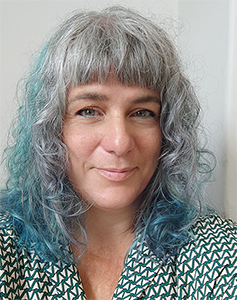Spicy Spaces: delving into the detail of neurodiversity
Autumn & Winter sessions now available to book
Spicy Spaces are hour-long discussion based sessions for therapists and coaches, providing an opportunity to delve more deeply into neurodiversity-focused topics. They are based on the principle that sharing knowledge and experience can greatly improving practice – the same principle that informs group supervision.
Aitch Nicol, training co-ordinator
Each session will begin with a short introduction to a topic or theme related to neurodiversity or neurodivergence, identified by our associates, clients and team. We then consider two sticky questions related to that topic, and work together to find answers.
Workshops are facilitated by Aitch Nicol, trained in both Action Learning and Knowledge Cafe facilitation, with many years’ experience of working in this type of informal learning environment.
Our Spicy Spaces sessions for Autumn and Winter
Discovering AuDHD
Thursday 21 September, 6:30pm
AuDHD is the unoffical term for a combination of ADHD and autism, where people self-identify with, or are diagnosed with, both autistic spectrum disorder and attention deficit hyperactivity disorder at the same time.
This workshop explores what it's like to experience these potentially conflicting conditions, and how therapists & coaches might understand and support people trying to make sense of a brain that wants them to plan yet be impulsive, to see risks yet ignore them, to daydream yet focus.
Working as a neurodivergent therapist
Wednesday 18 October, 1.30pm
We often focus on the benefits of neurodivergent people working with neurodivergent therapists, like connection, understanding and valuing difference, but what is it really like to work as a neurodivergent therapist? How can we identify and celebrate our skills but also manage our challenges?
Neurodivergent communication
Saturday 16 December, 10.30am
Neurodivergent clients often feel misunderstood and struggle to communicate in a way that builds and cements vital relationships. Understanding neurodivergent communication styles and preferences is vital for effective therapeutic outcomes. In this session we will explore the ways neurodivergent people may prefer to work with us and connect with others, such as using direct, deep and literal conversation styles and anecdotal vs questioning interactions. We will also explore non-verbal cues and challenges with focus.
Coming soon:
ADHD and menopause, social & cultural influences on neurodivergent people, and many more…
Sign up to our mailing list to keep updated on our upcoming workshops.

